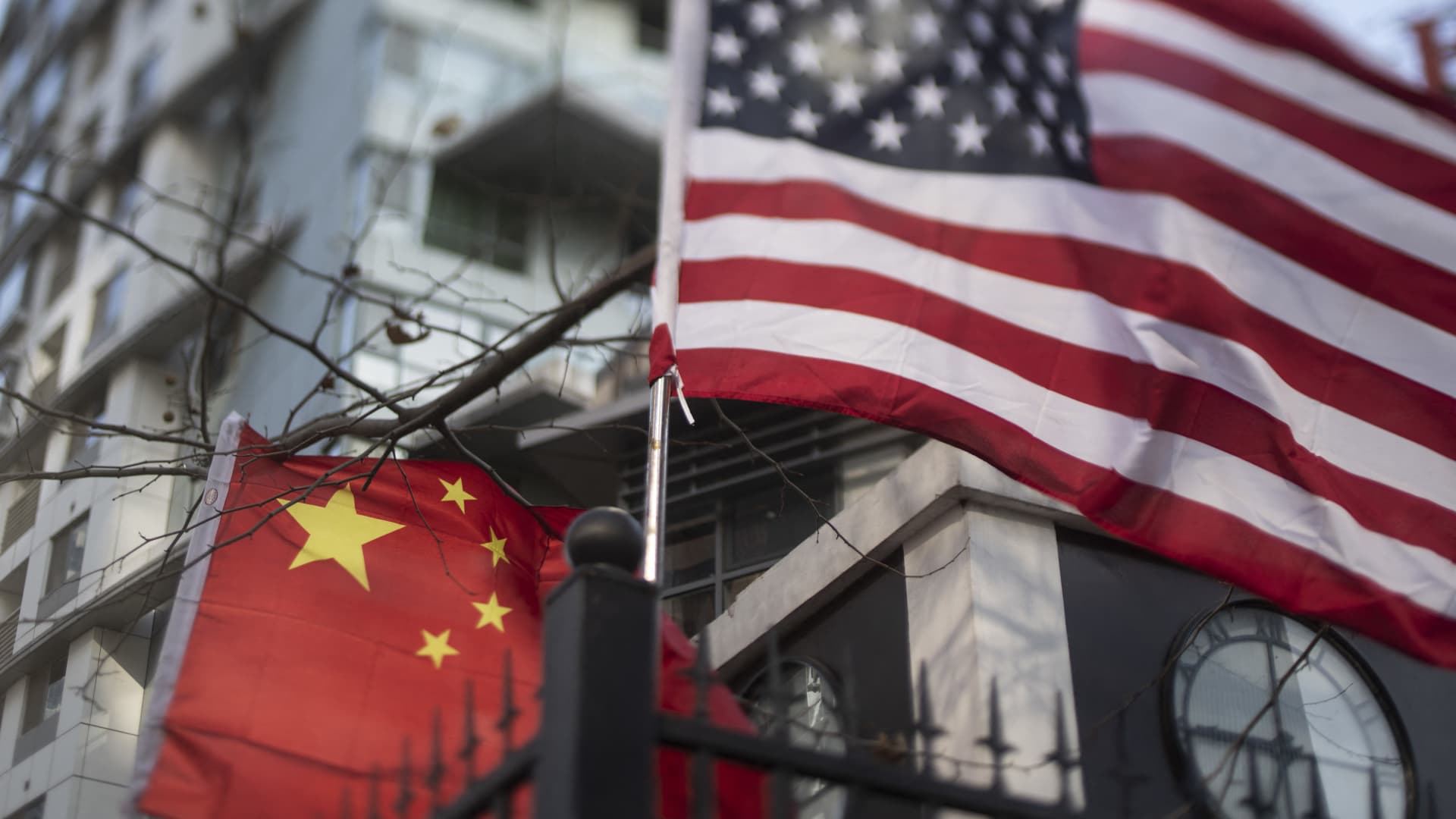Flags of China and the United States hang from the fence of an international school in Beijing, December 6, 2018. (Photo: Fred DUFOUR/AFP) (Photo: FRED DUFOUR/AFP via Getty Images)
Fred Dufour | AFP | Getty Images
Deputy U.S. Trade Representative Sarah Bianchi told Reuters the U.S. was taking an analytical approach to the review of whether to maintain tariffs on Chinese goods and would not base the outcome on any “breakthrough” in U.S.-China trade relations.
Bianchi said in an interview on Saturday that the Biden administration does not believe any such breakthrough will occur, but will continue to engage in dialogue with China at all levels.
“We are doing a review from an analytical point of view. As part of that review, we are not going to make any breakthroughs in our trade relationship with China,” Bianchi said. “We don’t think that’s going to happen.”
Instead, USTR is continuing to study industry and stakeholder comments on the mandate in consultation with the U.S. Departments of Commerce, Treasury and others to determine which categories are strategically important, she said.
“We’re looking at what makes sense economically,” added Bianchi, who oversees USTR’s work in Asia.
Former U.S. President Donald Trump imposed tariffs in 2018 and 2019 on thousands of Chinese imports, then worth an estimated $370 billion, after a Section 301 investigation found China misappropriated U.S. intellectual property and coerced U.S. companies into transferring sensitive technology do business.
Current tariffs range from 7.5 percent on many consumer goods to 25 percent on automobiles, industrial parts, semiconductors and other electronics. The main categories that escaped the tariffs included mobile phones, laptop computers and video game consoles.
A review is required under Section 301 of the Trade Act 1974, four years after the tariffs were first imposed, and begins with the initial notification step in May 2022. Bianchi declined to say when the review would be completed, but added that it was “reasonable” by the end of 2023.
The USTR extended tariff exemptions for 352 categories of imports from China for another nine months at the end of 2022, now set to expire on Sept. 30. Some trade experts in Washington believe that date could be a deciding point in the tariff review.
inflation argument
As the review progressed last May, some Biden administration officials advocated removing some of the tariffs as the administration struggles to rein in high inflation.
U.S. Treasury Secretary Janet Yellen said removing “non-strategic” tariffs would reduce the cost of specific goods, while Trade Representative Catherine Tai argued the tariffs represented “significant leverage” on China.
Bianchi noted that the inflation-related tariff discussions had subsided as inflation slowed.
Chinese Commerce Minister Wang Wentao’s objection to Section 301 tariffs was a concern when he met with Thailand in Detroit on the sidelines of the APEC trade conference.
Wang’s meeting a day earlier with Day and Commerce Secretary Gina Raimondo was the first cabinet-level exchange between Washington and Beijing in months amid a series of trade and national security setbacks, including the U.S. shooting down of a Chinese spy balloon flying over the continental U.S.
Bianchi said it was important for the global economy that the U.S. and China maintain a healthy dialogue, even as they disagree.
“These are the two largest economies in the world and we need to have dialogue at different levels, even difficult ones,” she said.
“Right now on trade, there aren’t a lot of similar views,” she said of the U.S. and China. “I’m not sure where it’s going, but I think the conversation will continue to be difficult, but I think it’s important that we have the conversation.”


